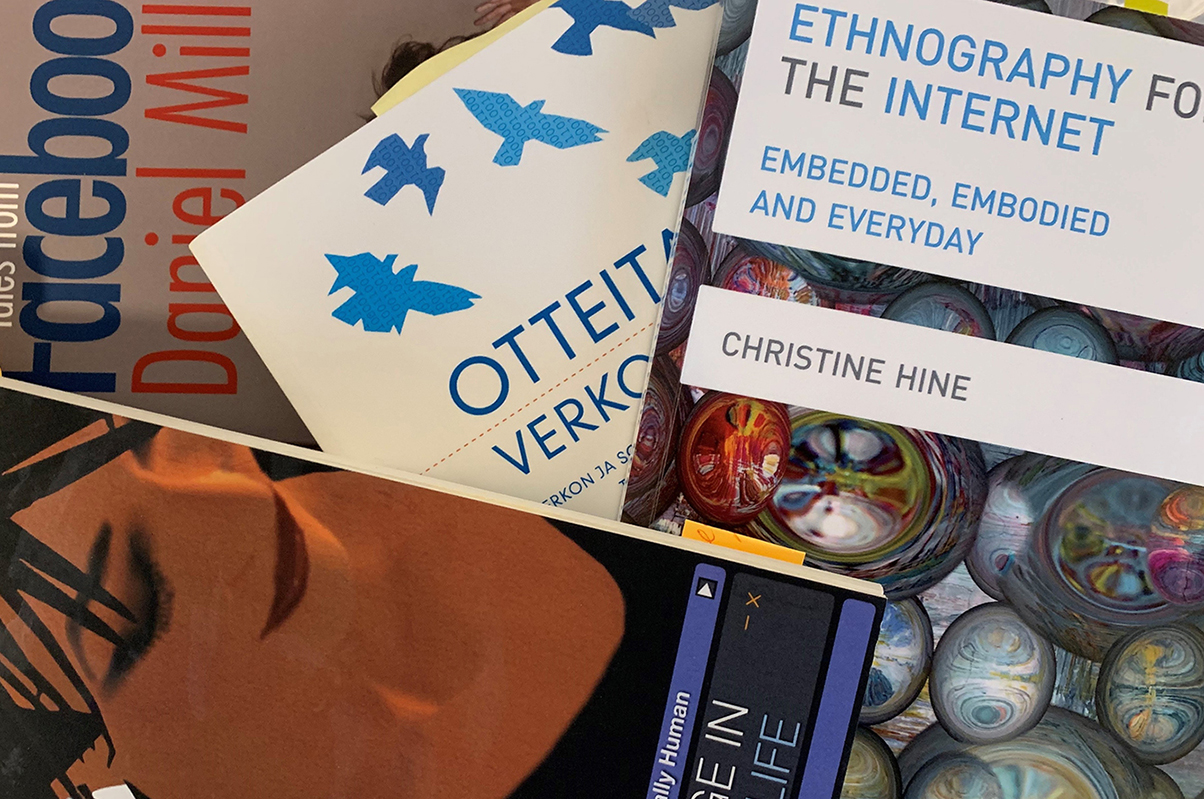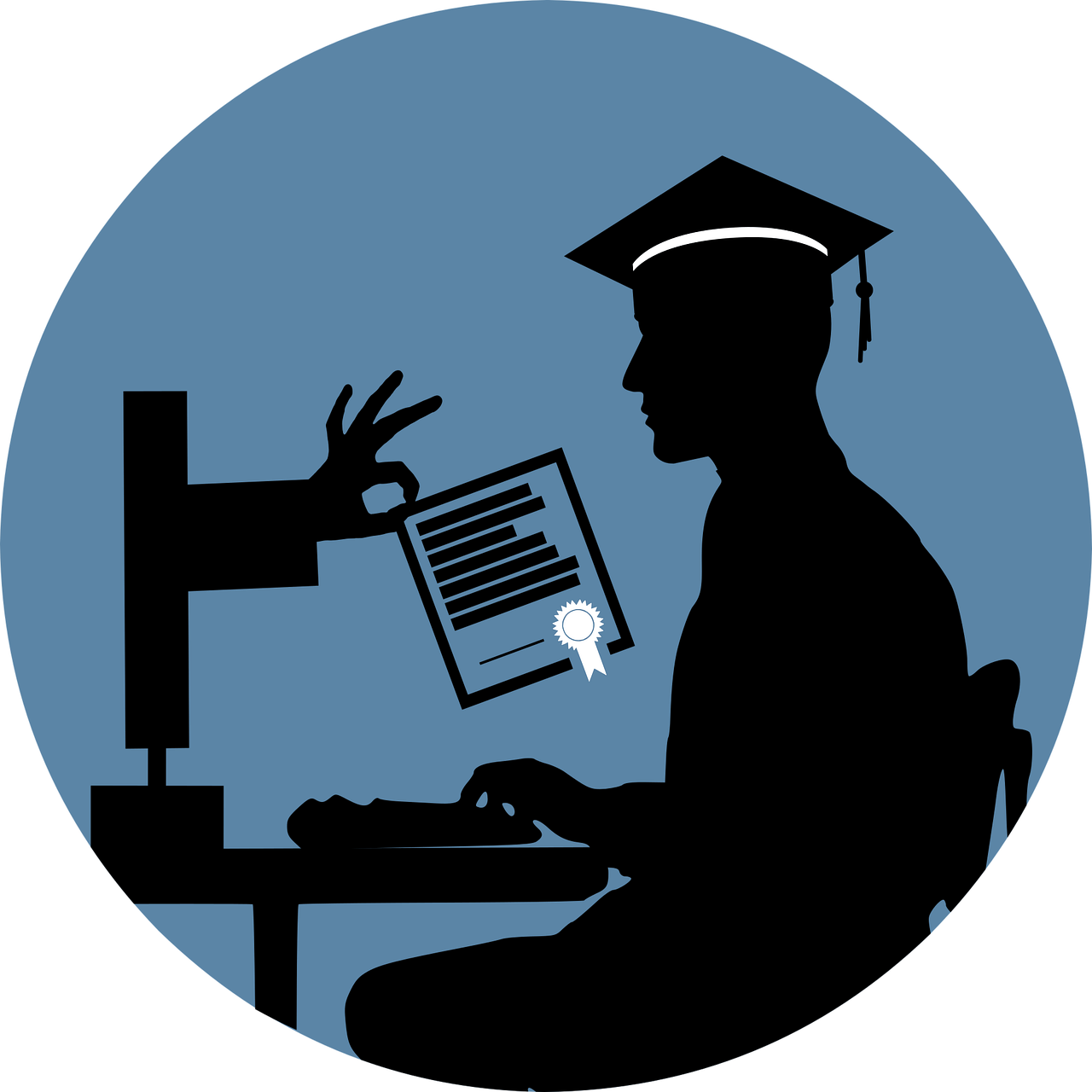Nuorisotutkimuspäivät 2022
On-line ja off-line: Digitalisaatio, ”digismi” ja tuoreen kosketuksen sukupolvi Itä-Suomen yliopistolla Joensuussa 9.–10.11.2022 https://www.nuorisotutkimusseura.fi/seminaarit/nuorisotutkimuspaivat/nuorisotutkimuspaivat2022
Balkan Forms of Digital Divide: What’s up, Serbia?
This text is inspired by a manuscript under a review dealing with digitalization of education in Serbia. Observing and researching the topic started in 2020 by acknowledging obstacles and recognized indicators for it. From the first beginning and “from the national statistics, as well as from European comparisons, we know that Serbia still suffers from […]
Digitaalista toteemitoimintaa: Etäkonferenssit osana uutta ”tietotyönormaalia”
Globaalin pandemian myötä digitaaliset työtavat ovat tulleet pakollisiksi tutuiksi ainakin kaikille tietotyön tekijöille – niillekin, jotka viime vuosiin saakka ovat opettaneet, kohdanneet, kokoustaneet, valmentaneet ja vaikuttaneet mieluummin kasvokkaisen vuorovaikutuksen keinoin. Arkiset toimintatapamme esimerkiksi korkea-asteen oppilaitoksissa ovat muuttuneet todennäköisesti varsin pysyvällä tavalla: pelkästään kohtaamisiin perustuvien työmenetelmien käyttäminen tuskin on enää mahdollista, käy pandemian kanssa sitten miten […]

Etnografisia havaintoja verkossa ja verkosta
Digitaalinen etnografia tarjoaa keinon ymmärtää verkkomedian merkityksiä, verkkoyhteisöjen sosiaalisia ja kulttuurisia käytänteitä yhteiskunnassa ja ihmisten arjessa. Se luo metodologisen kehyksen tutkijoille, jotka tekevät etnografista tutkimusta verkossa digitaalisin välinein ja digitaalisista käytänteistä. Sosiologi Alecea Standlee (2017) määrittelee digitaalisen etnografian multi-modaaliseksi laadulliseksi tutkimusmenetelmäksi, joka pyrkii ymmärtämään digitaalisesti välittynyttä vuorovaikutusta, yhteisöjä, identiteettejä ja normeja tarkastelemalla fyysisten ja virtuaalisten […]
Possibilities, but at what cost? – Reflections on the data from our first survey
We have completed the survey part of the DEQUAL project that charted the attitudes and perceptions of adolescents towards digitalization and both its perceived benefits and negative effects. We aimed the survey at respondents who were born in the year of 2005. This means that the group of interest is currently on the 9th grade […]
May I introduce: Seela in the Digiland PART III: Growing up as a digital native: Comfort in diversities
The biggest thought in interviews with Seela – a digital native – was about diversities and how they help us to grow up as open-minded, inclusive persons. At Seela’s age, growing up in a multinational and multi-confessional Province of Vojvodina was my biggest profit. Still, this “multiness” was not enough to understand the value of […]
May I introduce: Seela in the Digiland PART II: Digital native – behind or beyond the digitalized education?
“To understand their world, we must be willing to immerse ourselves in that world. We must embrace the new digital reality. If we can’t relate, if we don’t get it, we won’t be able to make schools relevant to the current and future needs of the digital generation.” Ian Jukes (The founder and Executive Director […]
May I introduce: Seela in the Digiland – PART I: Growing up as a digital native
When we discuss digital natives, there is a need to consider what – for example – 30 years of an age difference have to say about new technologies and digital environment. To bridge this gap and understand the world we are studying, a three-part narrative of a young person who acts in digital environments like […]
Nuorisobarometri 2020 ja moniulotteinen digitalisaatio
Vuoden 2020 Nuorisobarometri julkaistiin 23.3.2021. Nuorisobarometrin teemana on nuorille tarjottavat palvelut, joita tarkastellaan käytön, tarpeen ja riittävyyden näkökulmista. Tutkimus perustuu 1938 puhelinhaastatteluun. Nuorilta kysyttiin sosiaali- ja terveyspalveluiden, TE-palveluiden ja kohdennetun nuorisotyön palveluiden lisäksi myös kulttuuriin, vapaa-aikaan, ja avoimeen nuorisotyöhön liittyvien palveluiden käytöstä (s. 5). Tässä blogitekstissä nostan esille Nuorisobarometrissa käsiteltyjä digitalisaatioon liittyviä asioita, jotka tuntuivat […]

Digital Imaginaries and Imperatives of Education of the 21st Century – Critical Perspectives from Sociology of New Public Management and Philosophy of Education
ABSTRACT FOR THE ACM CHI CONFERENCE 2021 ”More than 70 startups from across 15 countries have graduated from xEdu, some of which have gone on to raise follow-on capital. They include 3DBear, a developer of augmented reality learning experiences, coding education startup Bomerbot, social-emotional program provider Mightifier and Roybi, which makes educational robots for kids.” […]